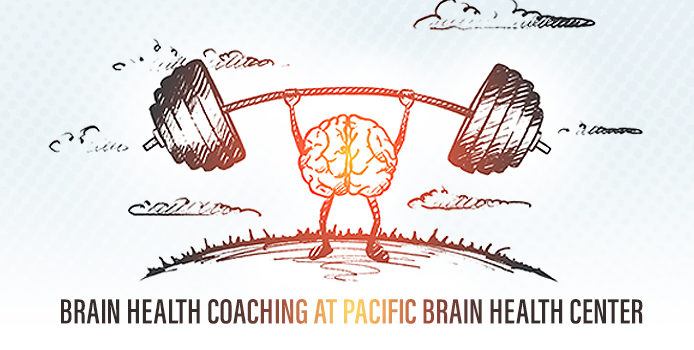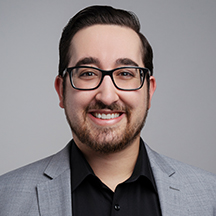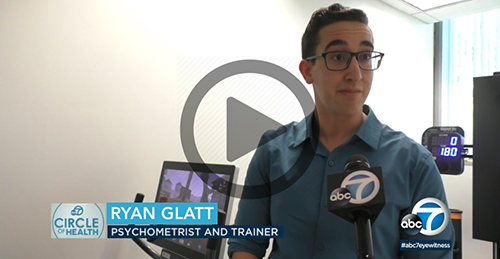

Brain Matters: Brain Health Coaching For Your Best Brain Behavior
by Ryan Glatt
Brain health coaching can help keep the brain on track and help stave off cognitive decline that comes with aging. A multi-modal approach includes physical as well as mental fitness.
We hear it all the time, ”Product fill-in-the-blank is great for brain health!” So for those of us who are motivated to stave off cognitive decline, we immediately buy whatever is recommended. Or, we begin the difficult journey up the behavior-change mountain to incorporate exercise, meditation, a morning walk, and so on. The challenging thing about this approach is that it is almost impossible to sustain these changes long-term, and long-term changes are often required for brain health.
Boosting cognitive reserve
With Alzheimer’s disease standing as the fifth leading cause of death for Americans over 65, it is more crucial than ever to employ every strategy available to keep our brains strong and healthy. We know that by boosting what is called cognitive reserve, which can be viewed as a gas tank for the brain’s structure and function, via lifestyle modifications and activities, we can have a better chance of staving off cognitive decline. With advances in science demonstrating the ability to improve neural networks and cognitive function, a process called neuroplasticity, there is hope.
As a Brain Health Coach, I help individuals identify and personalize strategies to incorporate into their lives that research has demonstrated to be effective for inducing neuroplasticity, and overall cognitive health.
Monotherapy vs. multi-modal interventions
When we incorporate change long-term into our lives, it is often only one thing. Applying one positive change, such as eating more salmon or introducing meditation is great, and on its own is referred to as monotherapy, meaning only one thing is done to improve brain health.
In reality however, research demonstrates that the best kind of intervention is taking a multi-modal approach – one that consists of applying various lifestyle changes together. While exact “prescriptions” are still being determined by research, we find that providing many general recommendations often can help lead to multi-modal behavior shifts in an individual’s life.
Our brain health recommendations
Here are some recommendations we find ourselves making often at the Pacific Brain Health Center.
Exercise
- Aerobic exercise: Enough to get your heart rate up to the point where you can only talk in broken sentences since you are so out of breath, 3-5 times per week for at least 30 minutes.
- Resistance exercise: Safely working the major muscle groups 2-3 times per week. Resistance training can improve cognitive health, and leg strength has been shown to correlate with brain health.
- Activities with cognitive demand: Martial arts, dance, tai chi, tennis, hiking, and other activities naturally have more cognitive load. Incorporating these activities 2-3 times per week, in addition to more traditional forms of exercise, can be helpful for improving brain health.
Mindfulness, Meditation, Breathing
- Mindful movement, such yoga or tai chi, is especially useful for brain health, fall prevention, and relaxation.
- Mindfulness-Based Stress Reduction (MBSR), Concentration Meditation, or Kirtan Kriya (a form of Kundalini Yoga-style meditation) have the most evidence for improving cognitive function.
- Simply breathing deeply when stressed, before bed, after a workout, or while in traffic can do a lot.
Diet
- A diet consisting of mostly plants, not too much food, and one with healthy fats seems to work best. Lower sugar and carbohydrate levels appear to be an important characteristic in brain-healthy diets. We often recommend the MIND diet and Mediterranean diet.
Novel Hobbies and Activities
- Joining clubs, organizations, boards, social groups (especially those with cognitive stimulation, such as board games or chess), and musical groups (either playing, singing, listening, or all of the above) have been shown to be beneficial for maintaining cognitive health. We recommend at least 3 hours per week in total. Novelty is key, so every 3-6 months, try to switch things up with different activities completely, or just by increasing the challenge or variety within your current activities.
- Cognitive stimulation: Brain games, such as Brain HQ, have been shown to positively affect cognition when performance for 30 minutes, 5 times per week.
As always, make sure to consult your physician before engaging in any of these activities. It is highly recommended to see a neurologist to assess your brain health, cognitive functioning, and fall risk. Ideally, the medical team you visit is connected with passionate and knowledgeable health and wellness professionals that you can work with, such as neuropsychologists, psychiatrists, geriatricians, social workers, and other health and wellness professionals.
For more information, please call 310-582-7641 or schedule a consultation on the Pacific Brain Health Center website.
Adapted from the original article published in the April 2019 issue of the Santa Monica Star

Ryan Glatt, FAFS, BSc, is a Psychometrist & Brain Health Coach who develops curricula specifically targeted towards those with dementia including Alzheimer’s disease, and Parkinson’s disease, coaching them towards their optimum brain health. He is at the Pacific Brain Health Center at Pacific Neuroscience Institute, Providence Saint John’s Health Center.
About the Author

Ryan Glatt
Ryan Glatt, FAFS, BSc, is a Psychometrist & Brain Health Coach who develops curricula specifically targeted towards those with dementia including Alzheimer’s disease, and Parkinson’s disease, coaching them towards their optimum brain health. He is at the Pacific Brain Health Center at Pacific Neuroscience Institute, Providence Saint John’s Health Center.
Last updated: April 10th, 2019
